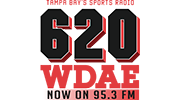Adventures in Bookmaking
Written by Steve Caruso (follow him on twitter @RusoCaruso)
If you’re like the rest of the public when it comes to gambling on sports, you’re struggling and could use a few tips. We live in the information age but we still need to filter all the information ourselves to gain value from it. Experience is key yet a lack of patience and limited bankroll can get you lost along that path. Your average gambler doesn’t understand the market, money management, or even have an honest understanding of how much work goes into long-term success. More and more the successful handicappers are the ones implementing styles that resemble Wall Street methods while the ‘public’ is trying to get rich off Apple and Google…or in NBA terms, Miami Heat and Oklahoma City Thunder.
Over the last six months I had the pleasure of shadowing a former gambler turned start up bookmaker. No, he wasn’t hitting at some ridiculous clip before getting recruited and offered a six-figure deal to work for the big boys. He barely hit 50% but had ideas, goals, and a way to turn his fortunes around. He went from talking shop with friends and acquaintances to opening up shop for friends and acquaintances. “My Guy” we’ll call him prefers to keep things simplified and remain anonymous but the events are on the record and now part of a “How Not To” guide in reference to handicapping success.
Previously I said experience was the key and the biggest part of experience is remembering, “Don’t do that again.” Consider my position along side a new bookie; it was my own personal focus group for the business in betting. For “My Guy” on the other hand it was like getting a scholarship anywhere in the country and that’s how he treated it. The first couple weeks got a little nerve racking; he’d sweat a few out but pretty soon warmed up to the profession and got used to the vig paying the bills. One way or another it always did at the end of the week. He knew his clients were no better at betting than he was; in fact they had far less knowledge than him. Maybe they had more luck historically but in the long run this was going to be the best bet he ever made both financially and educationally. He was now experiencing things from the other side and gaining a new perspective in bookmaking 101 (not currently offered in any college in America).
Eventually and pretty early on it got to the point where “My Guy” was handicapping most of his clients, though I should point out that that does have the potential to get slippery. In fact, that’s kind of back to gambling again, isn’t it? Let me illustrate an example. Last NBA season one Friday I happened to be hanging out at his place. We we’re watching highlights from the season on TV in preparation for round 1 of the NBA playoffs; lots of Blake Griffin highlights to be specific. We were entertained but not over reacting. Probably because we knew as dynamic a player he was he averaged only 2 points in the 4th quarter during the season and his style of play generally doesn’t translate to NBA titles. It was Chris Paul or bust for them we both agreed. We both loved Memphis, scrappy and underrated. During the playoff series every night when the line came out before the next game “My Guy” would increase the vig on the Clipper’s side. He knew from his clients’ betting habits that they were all drinking the ESPN juice. He only moved the line a few points though, I asked why not more and he cautioned that anything realistically could happen and he was no line-maker himself, just a man with his own book. ALTHOUGH, to both of our surprise Memphis ended up losing the series it didn’t hurt him much because he kept the lines close to the market and a 7 game series was fine for him with the increased vig in his lines. A sharp bettor who shops around for lines could go to town on a maneuver like that while just looking to middle. However he knew his clients; none of them were the least bit sharp and none of them would shop around. So that in itself was a free lesson; offer lines but don’t fall into the trap of going back to being a bettor. Adjusting lines can cost much more than adjusting actual costs and as a bettor I learned that you’re betting numbers, not just teams.
Historically and overwhelmingly it holds true that “the house always wins in the long run.” So “My Guy “always felt why should he let his local bookie get to take his friends’/acquaintances’ money? If they’re going to be losers than in the big picture it’s better he got the money than some stranger, right? (Ok maybe that’s degenerate talk but it still makes sense.) Aside from the thesis of what you can learn from the bookmaker’s perspective, he strongly believed it was just good business being a bookie. He explained to me that it’s basically a time-honored tradition, not to mention recession proof. How could I argue with that?
“My guy” always had a plan for risk management. He’d have a book to lay off bets that were too large for him to risk. Bookies have been cleaned out before, it would be naive to think it won’t happen again but he felt as long as he was prepared, he could weather any possible storm. I learned to be organized by keeping accounting in order. He kept records for every player and each week and always knew exactly where he stood overall and with each player. He ran a tight ship, something he couldn’t say he did as a gambler. One day someone who owed “My Guy” money called him with a thrilling yet cliché story that they suddenly couldn’t meet him because their car broke down, nothing new but “My Guy” had another timeless story of his own: 10% after the first week late and every week late after is compounded into the figure with the juice running. Moral of the story: no stories necessary. If you’re betting money you don’t have, it isn’t a good bet at all. If you think that’s bad ask the credit card companies how that usually works out for debtors.
Yes the money was good but the experiences of his clients were invaluable. “My Guy” was nothing when he got into bookmaking but since, I can honestly say he was able to learn from others’ mistakes and make them his lessons while increasing his own bankroll. When it was time to get back to being a gambler he would be ready for the test. Once you understand what not to do you can begin to sharpen your game. But he never got too cocky like most bettors do off a big win. He knew that the real architects were the oddsmakers providing opening lines he could manipulate. Gambling translation, “don’t get too high or too low from individual wins and loses, longevity is the goal. There are no true short cuts, only different paths to walk with it’s own unique experiences to grow from.”













